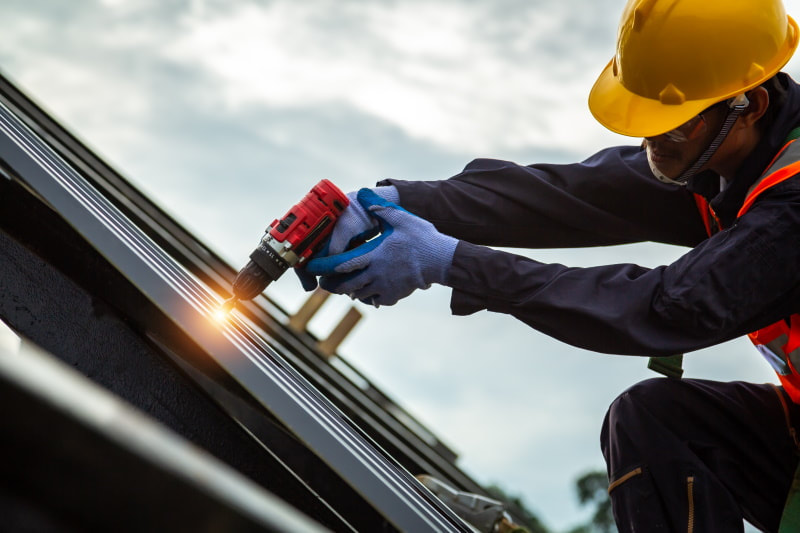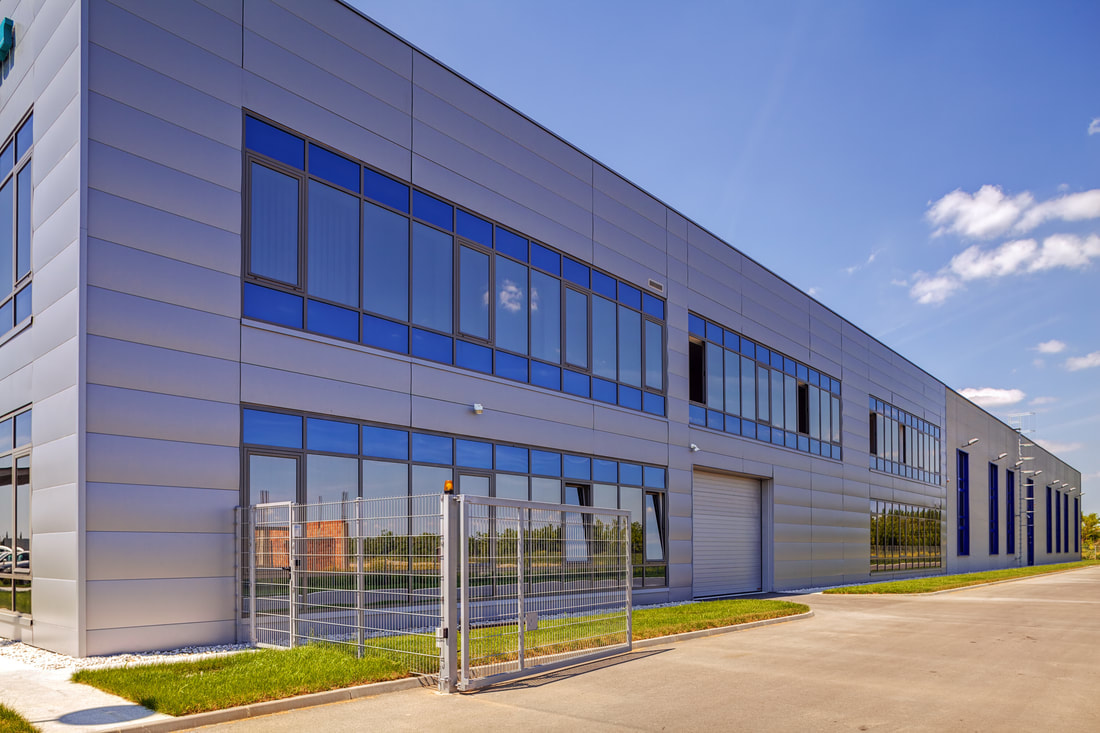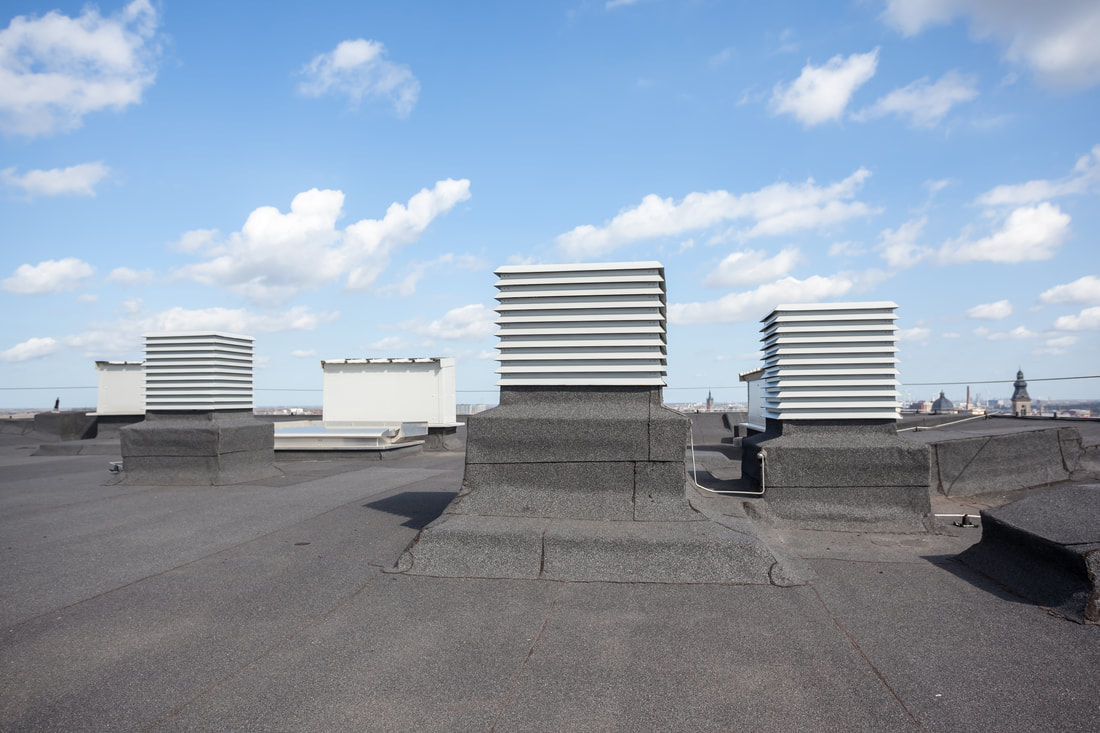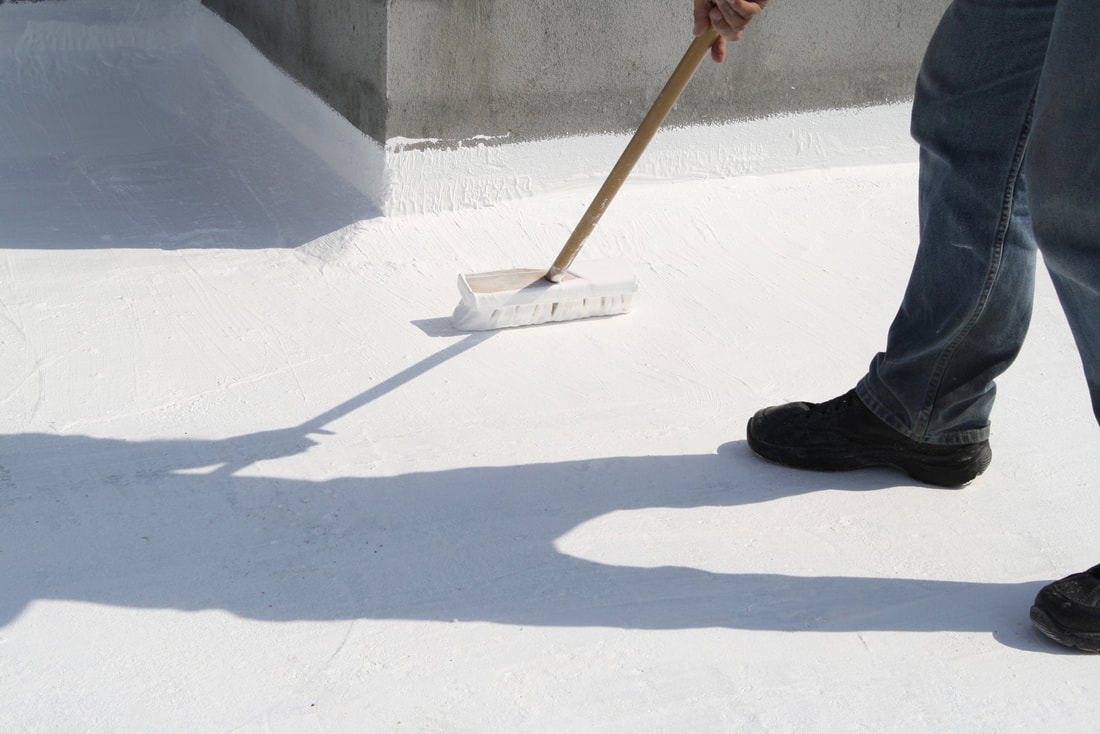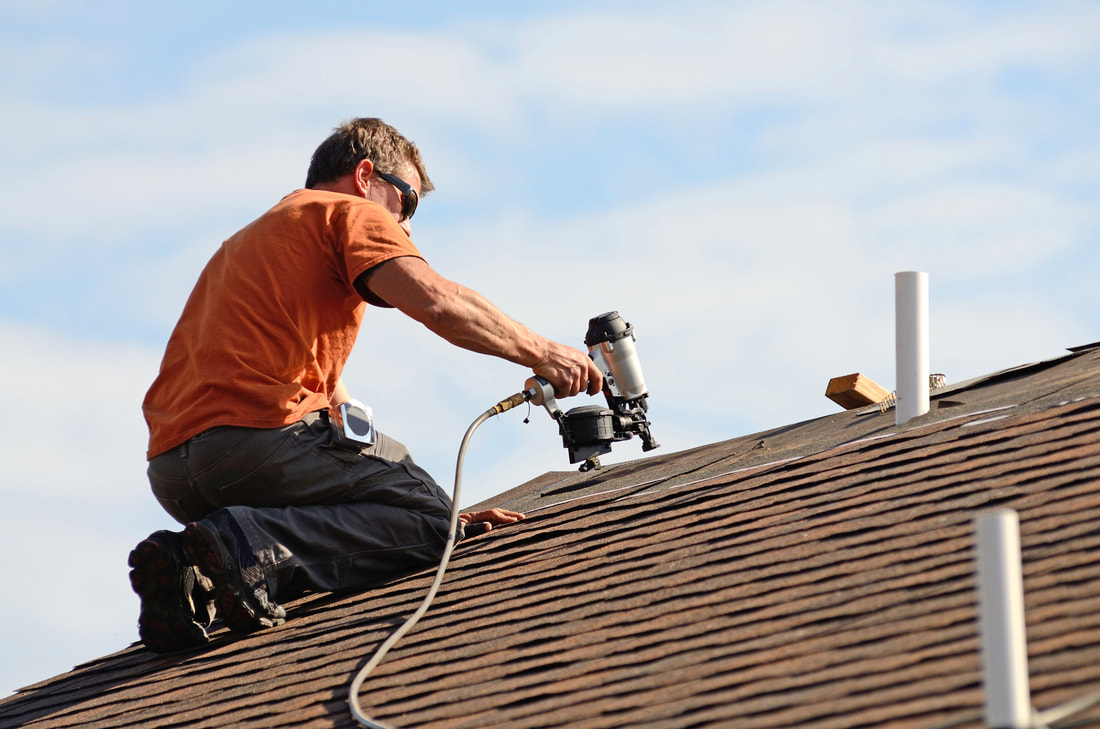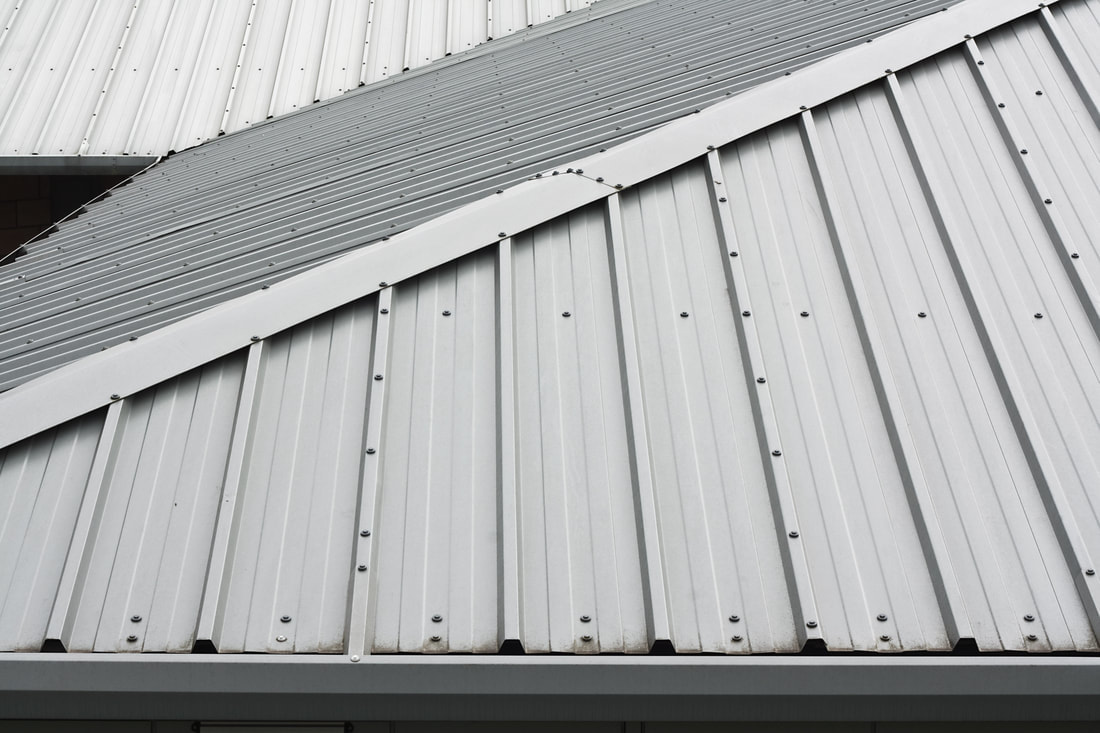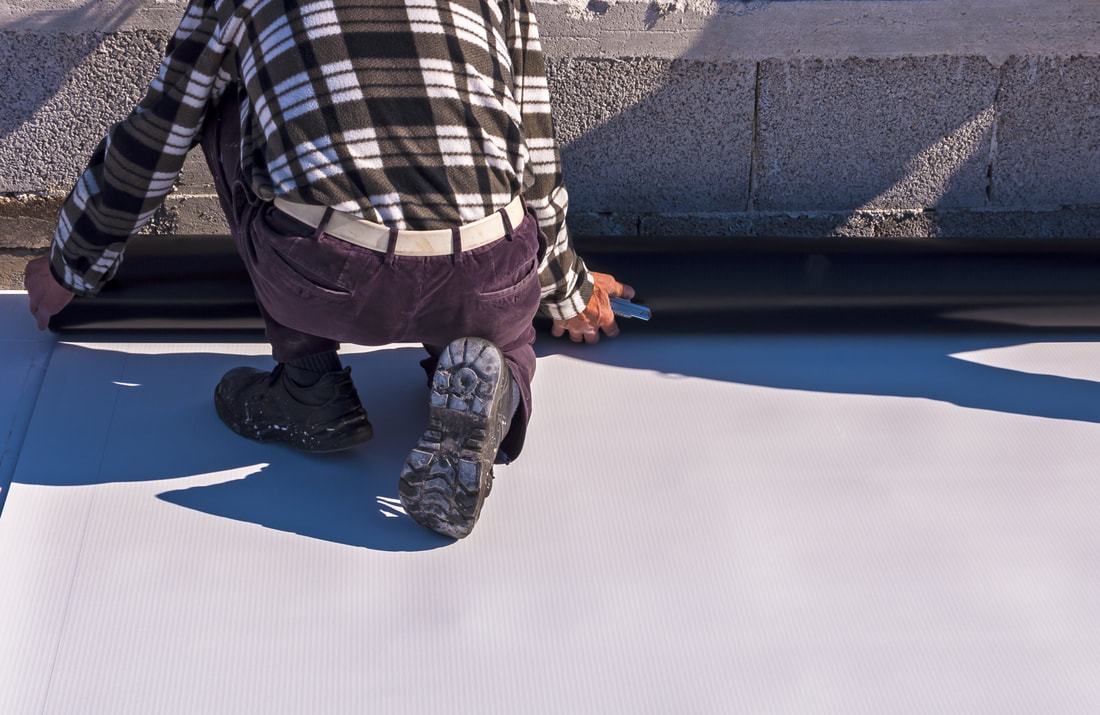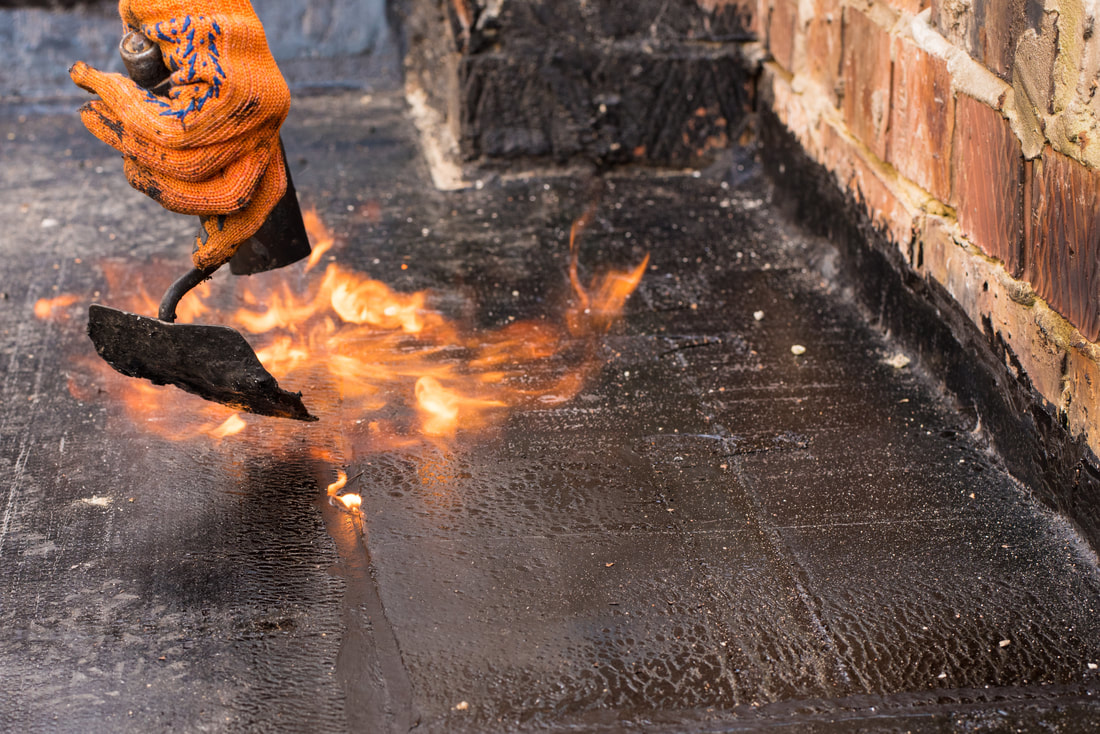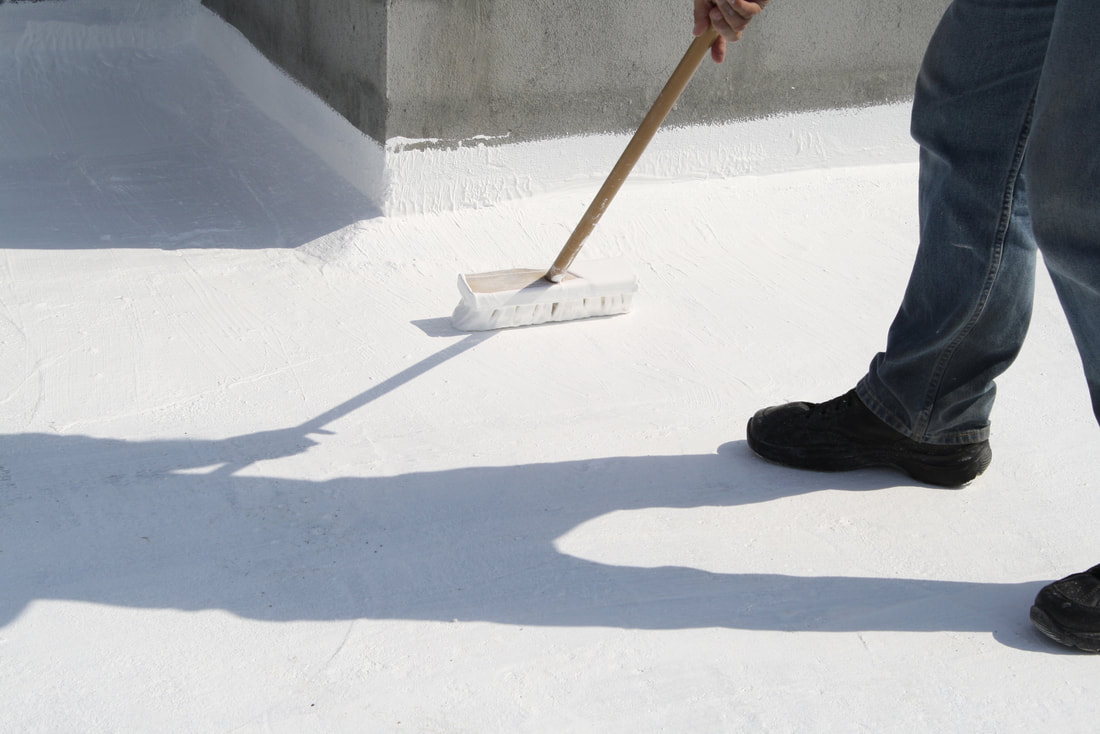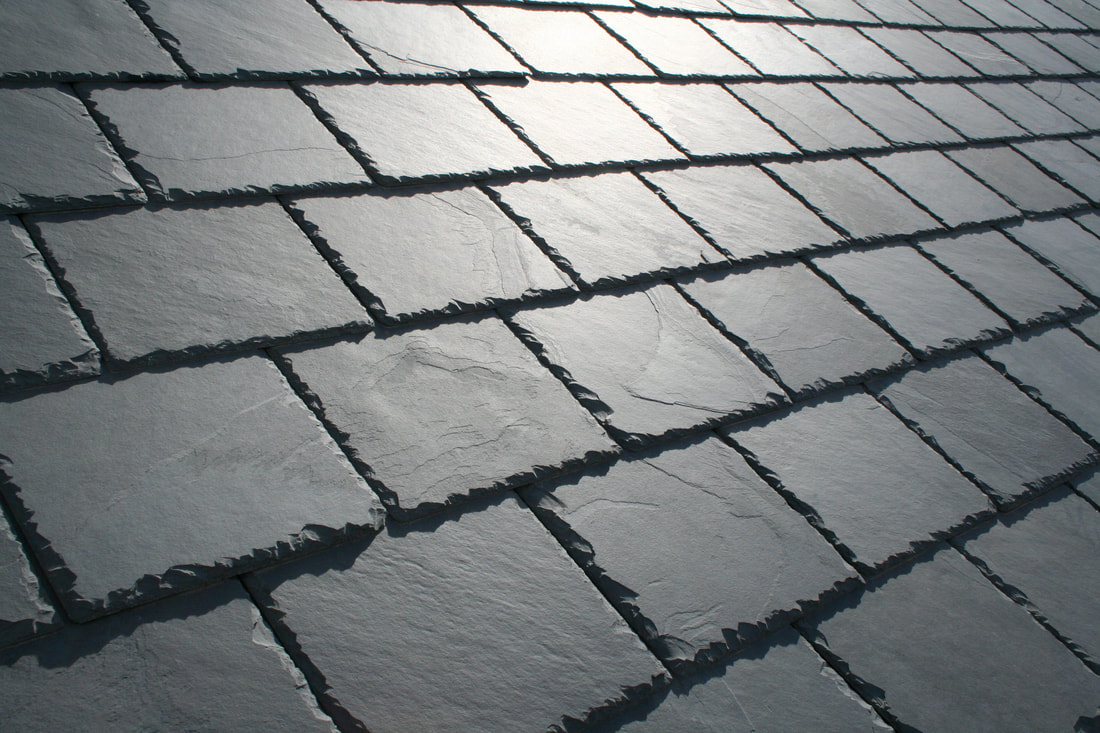VA Commercial Roofers
|
FREE
|
We work with all types of commercial roofing
Business Roofing
- Business Roofing comes in all forms just depends mostly on pitch of roof:
- Business roofing of a moderate to steep pitched roof can take many forms, such as asphalt shingle, slate, metal (panel or shingle) and concrete or clay tile.
- Business roofing for low pitch or flat roofing use Tar and Gravel or BTU (Built Up Roof), Modified Bitumen, Rubber Membrane (EDPM), Metal panels, TPO (single-ply membrane) and waterproof roof coatings. Most flat roofs have a minor pitch to slowly drain moisture to its preferred drain system so during repairs this pitch should be retained. The flat roofs will also place environmental building equipment on the rooftop.
- The kind of roofing a business chooses will in some way complement their business, such as bakeries may choose a metal roof that will be more fire proof than other types of roofing.
- Generally, business roofs are smaller roofs with less open space surrounding them than Commercial or Industrial so this opens them up to a bigger environmental impact. Trees overhanging the roofs can drop fruit, nuts, leaves, needles, and broken branches all of which can deteriorate the roofing material (leaves and pine needles can rot asphalt shingles) or functioning of your roofs waterproof system (roof debris will clog flat roof drains). Trees can also be a highway for critters or criminals to access your roof. Trees are beautiful but they are a main source of outside turbulence brought to your roof and should be kept trimmed back.
Commercial Roofing
- Commercial Flat roofing styles include: Tar and Gravel or BTU (Built Up Roof), Modified Bitumen, Rubber Membrane (EDPM), Metal panels, TPO (single-ply membrane) and waterproof roof coatings.
- These types of roofs mount all environmental building equipment on top of the roof. These roof penetrations must be properly treated to avoid any leaking or ponding on the rooftop. Care must be taken to follow the roofing manufactures recommendations precisely for installations or repairs of their specific roofing systems- including following maintenance recommendations.
- Faults on a commercial roof can sometimes be fixed easily, for example debris on the roof may be causing ponding, drains for water removal could be blocked, and vent or pipe penetrations may need caulking. Other problems take more experience roofers to track down elusive leaks or problems (like mold infestations), such as: Leaks that are hard to discover may require layers of the roof to be peeled back to find the split in the membrane, clogged drain pipes may need to be disassemble to be cleared, and Pest control may need to be engaged to catch critters that may be chewing holes in the membrane or slipping into venting looking for a home. Check out a pest company Arlington VA.
Industrial Roofing
- Industrial Roofing is for manufacturing companies that need strong roofing material that can take above and beyond the normal wear and tear experienced by other businesses. They are exposed to chemicals, exhaust and precipitates from the manufacturing process that can break down less robust types of roofing material very quickly.
- Industrial roofs also have several more roof penetrations on the rooftop than what other roofs need, such as more skylights to bring natural light into large interiors where windows can’t penetrate the gloom. They also need more exhaust venting to off gas chemical reactions into a filtration system. In addition, they may also need special environmental control systems operating on the rooftop to control any dust or dirt that may blow in from the surrounding environment. Think of electronic components or food productions that require very clean airflow.
- Generally, there are certain types of roofing material that work well for the industrial roof: Tar and Gravel (BUT), Modified Bitumen (modifiers added to asphalt to give it rubber like properties making it more durable), EDPM rubber membrane, TPO single-ply rubber like membrane that normally includes an insulation layer and Metal Roofing works well for those roofs that are closer to low or moderate slope than flat: the material is strong yet light in weight.
We can handle large and small jobs alike
We work with all types of material
Asphalt Roofing
- Asphalt shingles are designed for moderate to steep pitched roofs that shed water quickly. These shingles are sometimes called composition shingles and about 80% of all pitched roofs in the USA are covered with them as they are the most affordable form of roofing available that will last 15 to 20 years.
- Asphalt shingles are composed of a base layer of fiberglass reinforcing mat and is then coated with asphalt to make the shingle waterproof. Lastly, ceramic granules are embedded on top to block ultra-violet light, protect the surface of shingle from impact, and to give it color.
- The most affordable 3-Tab shingles have cutouts or tabs made along their long lower edge causes the shingle to look like three separate pieces when installed even though its only one. They are thinner and less expensive (30 to 40 percent less) than the architectural style and are the most popular shingle today.
- There are different qualities of shingles that rank their life expectancy from 20 years to life time warranties. The thicker 3 dimensional or Architectural are a multi-layer, laminated shingle that produces a 3-dimensional effect on a roof and are heavier and more durable than the less costly 3-tab shingle designs. These shingles are also made to look like more expensive roofing materials, such as cedar and slate. The thickness of dimensional shingles hides imperfections on the roof’s surface better than the thinner 3-Tab ones.
- The roof is a system comprised of many components, not just the shingles. There is the water proofing underlayment (ice shield), the water-resistant underlayment (felt), possibly skylights, the attic ventilation and the flashings- all are important to the success of a long-life system. Manufacturer’s warranties usually run 25 years for 3-Tab and 40 to 50 years for architectural. However, some studies, conducted by roofing manufacturers, have shown that primarily the problems occurring with roofs requiring replacement before their predicted lifespan find the problem lies more in faulty installations rather than roofing materials.
Metal Roofing
- Most Commercial building managers with low to high slope roofs look to metal roofing as a way to get a durable long-lasting roof that is both affordable and very quickly installed. Plus, it comes in many styles and colors and easily coated after installation to provide additional waterproofing, anti-rust and UV protection.
- Metal Roofing is used quite extensively in agricultural roofing applications in the form of 5-V metal roof panel because it is the most affordable metal roofing products out there and will last a long time on a barn. However, this roof is nailed directly to the roof decking and after many years of temperature variations causing expansion and contraction could cause the nail holes to expand then water could seep down into the building. This is not much of a problem in a barn but in another situation, it could be. Changing the 5-V panels to interlocking standing seam panels would prevent leaks from weathered nail holes but would also be more expensive. Contractors can use screw down fasteners with rubber washers to also alleviate the problem.
- Metal panels come in 3 options a foam insulation backed panel, exposed fastener and seamless interlocking panel. Speed of installation is quick especially with the larger panels. Metal panels are so light in weight that it works well as a roofing material to put over an old roof without a tear-off.
Slate Roofing
- Slate performs well as a low-maintenance and longed lived roofing material: It’s very dense structure makes it water repellent, fireproof and withstands freezing and thawing cycles well. Slate has been used as a highly successful roofing material since the 13th century. We have centuries of performance history, following installed slate roofs in many climates to educate us on the best types of Slate and excellent installation practices.
- These roofs can easily last 200 years or more (depending on type of slate used and professional installation methods). Slate durability between the regions of origin differs. Roofs built with Vermont and New York slate last about 75 to 125 years while Buckingham Virginia slate last about 100 to 175 years or more. Also depends on maintence, such as taking care of leaks or degraded flashings or sealants promptly.
TPO Roofing (thermoplastic polyolefin)
- Thermoplastic is a plastic or synthetic rubber like substance that softens when heated but hardens upon cooling. TPO membranes are single-ply roofing membranes that come in varying lengths up to 100-feet-long and 6 to 12 feet wide. They are typically 40 to 100 mils thick with a highly reflective white top protecting the dwelling from solar heat gain.
- Choice of 3 types of installations attached with fasteners, glued directly to the roof, and seams between TPO membranes are heat welded, as well as, around roof perforations, such as chimneys, vents, cables and pipes. TPO membranes’ seams that are heat welded and once cool becomes a very strong bond.
- The TPO sheets contain flame retardants, UV absorbers, and other secret ingredients to achieve desired properties.
- Quality varies greatly from one manufacture to another and price isn’t always an indicator of good quality. This is where a good roofing contractor can help explain the differences in TPO membranes and which manufacturer has held up well in Alexandria, VA climate.
- When the TPO membrane ages, the top layer of it will shrink, crack, craze and generally deteriorate. If the roofing membrane has numerous cracks and has pulled away from the seams, then it may be time to replace the membrane. Generally, most roofs can handle two layers of membrane. However, it may be best to know if there is moisture damage underneath. The insultation may have mold from the moisture damage and need replacement. The wood framing may have also developed rot and need repair.
Tar and Gravel Flat Roof System (BUR)
- The Tar and Gravel flat roofing system or Built-Up-Roofing is manufacture on the roof beginning with coal tar heated in a kettle or tanker to a temperature high enough to be easily spread. The tar is applied to the roof surface with a mop or spreader to be followed with a layer of felt or fiberglass fabric (produced in a standard width of 36 inches). Then, repeating the process till you get the number of layers wanted (four ply roof means the roof has four layers of roofing membrane). The final layer of tar will be topped with enough gravel to cover the entire roof surface.
- The average lifespan of these roofs are 30 years with periodic maintenance (some are still structurally working well beyond 50 years). Note: Hot tar is very hazardous to work with so this type of roof should always be done by a professional besides it’s very smelly during application and often makes people sick.
- This type of roof is self-healing: at temperatures above 70 degrees, the tar begins to soften and flow into lower areas, such as small cracks or punctures within the felt or fiberglass fabric layers.
Modified Bitumen Roofing System
- This roof is manufactured on the roof with roofing layers of polyester or fiberglass impregnated with bitumen (a black viscous mixture obtained naturally or a petroleum distillation residue). Modified Bitumen roof are installed by rolling out the roofing material as its being heated with a blow torch to allow the material to adhere to the roof surface. There are also peel and stick membranes available. This roof is stronger and more resistant to weather than the BUR roof.
- Modified Bitumen membranes are strong and resist tearing because they are reinforced with fiberglass, polyester or a combination of the two. The tar or bitumen is the waterproofing substance within the fabrics that when heated with the torch becomes an adhesive to firmly attach itself to the roof deck. Topping off the roofing membrane with gravel is not necessary because they already have a mineral based granule surface that protects the membrane from UV rays and minor impacts.
EPDM: Ethylene Propylene Diene Monomer
EDPM is used to create a single-ply rubberized roofing membrane. EDPM is sold in a range of widths of 7.5 to 50 feet and in 2 thickness, 45 and 60 mils. It can be installed as one complete membrane or one with seams connected with adhesives or specially formulated tape.
Polyurea Liquid Waterproofing
- Polyurea is a liquid or spray coating that is used successfully for waterproofing flat roofs, Polyurea forms a seamless monolithic waterproof coating over surfaces that not only protects against leaks, rust and erosion, it can also stretch and shrink with the surface during climate change.
- Polyurea coatings have been proven to be flexible, and durable protection over building materials that are degraded by the Sun’s rays, rain and other climate changes- we have had 3 decades to study their performance. The formulations have improved during this time and now these coatings are often used to repair Roof surfaces that are leaking. Some formulas will dry within 4 to 6 hours- a big advantage when you need a protected structure back in service.
Why Choose us?
We are a multi generational, family owned roofing company with over 40 years of experience with all types of roofing. You cannot take your reputation with you when you go but you can leave it behind for your children and that's what we plan to do. Build something that can (and will) be passed down. This means that every job we do will be quality and at a fair price.

Fully Licensed and Insured
Never take a risk by hiring an unlicensed roofer. Not only can they ruin your roof but they could also try to sue you if they get hurt on the job. We carry both property and liability (workers comp) insurance so you are protected.

Third generation, family owned roofing company
This business was started by my grandfather. My father learned the trade from him and I learned from both of them. I plan on continuing to pass down my craft to my own children and our family reputation is very important to me.
This business was started by my grandfather. My father learned the trade from him and I learned from both of them. I plan on continuing to pass down my craft to my own children and our family reputation is very important to me.

Warranty
Our materials carry a MINIMUM 20 year material warranty and we also provide a free 7 year no-worry labor warranty (and we do not charge for it like a lot of other companies out there).
Our materials carry a MINIMUM 20 year material warranty and we also provide a free 7 year no-worry labor warranty (and we do not charge for it like a lot of other companies out there).
What our Clients Say
Here are a few of our past clients

I own a construction company and we regularly sub out work to VA Commercial Roofers because they are always reliable and I don't have to check behind them.
If you are looking for your own sub contractor for large jobs or want to use them as your main then you can't go wrong.

Our experience with VA Commercial Roofers was flawless. Pete explained everything we needed, knocked out the project in no time and inspected his crews work throughout the process. The price was fantastic as well.
We have referred them to several other business owners and will continue to do so.

As a contractor myself, I know when other contractors do a great job and when they take shortcuts. VA Commercial Roofers are one of the good ones. They re-roofed my warehouse that I use to house my asphalt equipment. Their crew was in and out in no time and did a fantastic job and the price was fantastic. I would (and do) recommend them to people when they ask.
Still have questions? No problem, give us a call!
We will be happy to discuss your project with you and provide a fast, accurate estimate for you.
